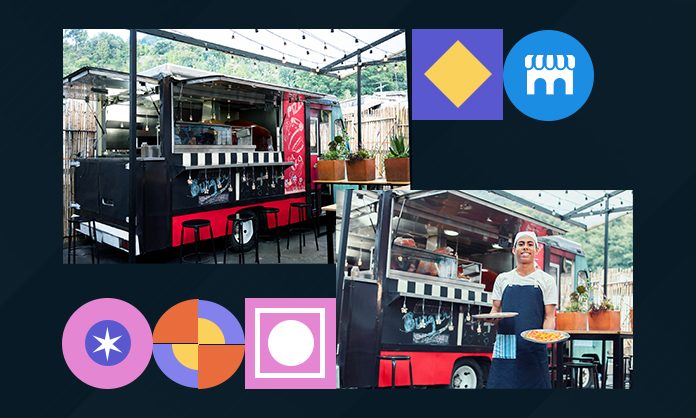How to write a food truck business plan?
If you are a food entrepreneur going into the mobile dining experience, you’ll need more than your strongest suit – your culinary experience.
So, what makes an expert food truck entrepreneur out of an expert chef? The right business plan, or a draft of it, to say the least.
This business plan is a strategic roadmap with your vision, strategies to run operations, market research, financial projections, and more.
You can write one to attract investors or just to clear out a roadmap for your food truck business. But, in both cases, there are tricks to doing it the right way. I have shared a strategic guide to write your food truck business plan in this article.
Get Back to Your Executive Summary Later
The first section of your food truck business plan is the business plan. It reflects your entire business plan and what it offers to the audience. Whether for fundraising or securing loans, an executive summary plays a big part in your business plan.
In this section, you must write what makes your food truck business unique and how it stands out. So, it’s better to get back to this portion of the business plan later.
Company Overview
This part of your food truck business plan must include a detailed company overview. But while writing, don’t get lost in the practical details. Craft your company overview with the company details as your pillars and a compelling narrative to showcase your unique side.
Here, I have broken it down into a few parts –
Business Description
- Concept: The business description includes your concept for the food truck. It can be a recipe, your personal history as a chef, or a story driving a community of people to your food truck. A simple place to start would be with your dishes. Whether you serve vegan, fast foods, or ethnic cuisines at your truck lays out the.
- Structure and Ownership: Now that the concept is ready, the next part of the food truck business plan must include your business structure. Mention how you are going to incorporate your food truck business. Is it going to be an LLC or an S corporation, or will it go under an S corporation?
- Location: where will you operate your food truck from? Specify a food truck location and describe why it is strategically the best location to choose for now.
Experience & Qualifications
This is the place where you highlight your experience. It could be related to the culinary experience you get from your family. It can come from your formal culinary training or your personal stories.
Some cooks bring their personalities to it, while some are vocal about their family culinary heritage. With experience and qualifications in the food truck business plan, you can make stronger demands and appeal to the audience.
Staffing & Labors
This portion in the company overview for your food truck business plan must detail the labor practices. Also, outline your staffing needs, allowing the audience to see a scalable business operation.
- Employee Roles: identify the different roles you need employees for. You might require chefs, servers, or prep staff. Don’t forget to detail the hiring operations and how you will train your employees.
- Labor Practices: Here, explains your approach to managing your employees and any plans you have for training and retaining your workforce.
Goals and Financial Considerations
This portion of the food truck business plan includes your financial goals for the business.
Startup Costs: Write down the startup costs needed to start the business. Include details like the cost of your truck and other setups and equipment.
Financial Goals: what are your financial goals for year one? Most small food truck owners want to recover their startup costs and initial investment in year one. Outline such early short-term and long-term business goals in this portion of the business plan. Also, mention the strategies you have in place for meeting those goals.
Unique Selling Proposition
The company overview part of the business plan also includes your unique selling proposition. This is the key differentiator that sets you apart from the competitors. Usually, it’s a signature dish, your recipe, ingredients used, a story, or an attractive price. Don’t forget to mention how these details will help you succeed in running the business.
Market Research
Food truck businesses enjoy lots of flexibility compared to restaurants. You can move to where your customers are and get most of the foot traffic that comes your way. However, most states have restrictions as to where and when you can serve your customers.
That’s why doing your market research before starting the business is also critical. Start by analyzing the location where you are going to do business. There are city-specific rules as to how and when you can operate.
In some cities of Texas, –
- Businesses cannot operate during the night hours.
- Some zoning regulations might stop you from setting up the business in residential and school areas.
- Some Texas cities would require food vendors and mobile food units to maintain a distance from brick-and-mortar stores. There’s a 100-meter rule in Vancouver.
The food truck industry was valued at $1.23 billion in market size in 2022. The growth projection indicates its growth up to $2.04 billion by 2030, reflecting a 6.4% annual growth1
Plus, more than 35000 food trucks are already running business in different parts of the USA2. It’s critical to consider such data before starting your business. This phase of the food truck business plan should include your market analysis.
Following are a few parameters to follow when doing your market research for the food truck business –
- Research Regulations: Enquire about the permit, food safety certifications, and zoning laws in your location. This also includes parking laws in a location.
- Identify Target customers: Write down the demographic data and the potential traffic of the location where you want to run your business.
- Choose your menu: Your data and customer performance should tailor your food menu. A well-planned menu contributes to your food truck’s success.
Marketing Plan for Your Food Truck Business
Your business plan also must include a clear marketing plan for the food truck. Restaurants and brick-and-mortar stores have advantages, such as putting up signage outside the store, indoor seating arrangement, and other amenities. Food trucks are quite different from mainstream businesses.
So, the marketing must be different from the mainstream. Take your business up on social media channels and build a cohesive brand voice. By creating clear and attractive content, you can let people know about your business.
Keep posting on your feed regularly, tag food lovers, and make awesome content. Once you create a buzz, your audience will know where to find you.
Usually, it’s best to focus on your branding and USP for food trucks. Sharing location updates with the followers is also a good way to drive traffic to your food truck business.
Your food truck business plan needs to include all your marketing plans.
Food Truck Operations
The next phase in the food truck business plan includes your operations. When do you open the store? When are the fresh croissants ready? There’s a lot to do from parking the food truck at a location to running it daily. The operations include your customer service, inventory management, tracking, accounting, etc.
Write down the entire process of operating the food truck and the other rules you want to follow.
Financing Your Food Truck
Setting up a food truck business is easier than setting up a brick-and-mortar business. However, there’s still a startup cost ranging between $50000 to $250000. Including your strategy to meet your financing for the startup in the business plan is crucial. Most owners start with the following ideas –
- Brick & Mortar bank loans.
- Alternative loans.
- SBA loans for food trucks.
- Merchant cash advances,
- Crowdfunding.
- Asking family and friends.
- Equipment financing.
- Commercial real estate loans.
Sales Forecast
A clear and proper sales forecast are necessary. It helps you track your growth and see if the results meet your expectations. The forecast helps you understand how much you need to sell to cover the monthly expenses. If you use the business plan to attract investors, they need to see your sales forecast.
Break Even Analysis
Start with a break-even analysis and detail how much you need to make in sales to cover the regular monthly expenses. They want to know your potential profits and losses, and an educated projection is important.
Your investors want to invest where they have a clear chance of making money. A break-even analysis can help them and help you in turn.
Cash Flow Analysis
Make sure to write down a cash flow analysis in your business’s sales forecast. It must include the labor, supplies, operations, etc. This is a demonstration to the investors that your food truck business is sustainable without additional funding. Consider how food prices, salaries, and maintenance costs balance out at the end of each fiscal quarter.
Conclusion
In conclusion, a comprehensive food truck business plan is vital. It helps you set up the foundation for your business by addressing key elements like market research, financial projections, and marketing plans.
While creating a successful business plan is essential, you should be open to innovations and adapt to new changes. Make it flexible to adapt to changing situations. Hope this article helps. Let us know if you have any queries. Thank you for reading.
For More Business Related Articles Click Below!!




Leave A Comment